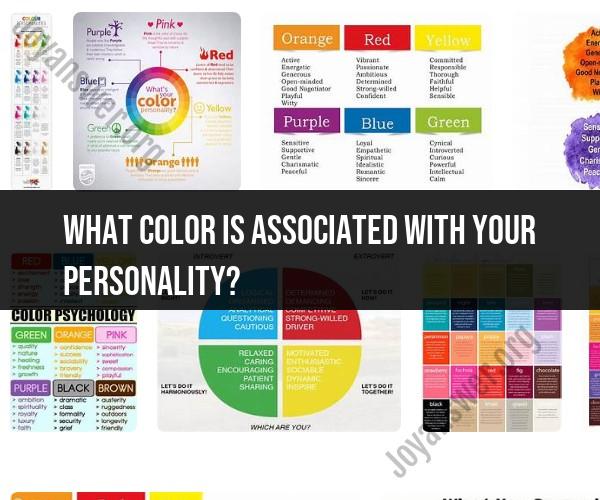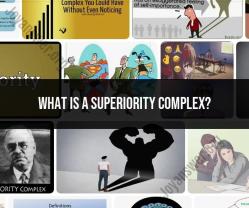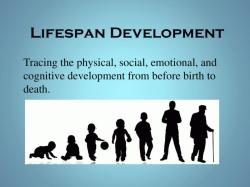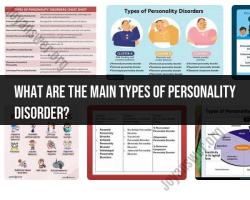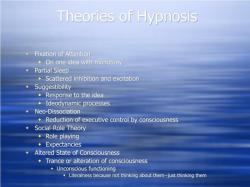What color is associated with your personality?
Personality color theories, often associated with the field of psychology and self-help, suggest that your favorite color or the color you feel most drawn to may reveal certain aspects of your personality or temperament. However, it's essential to understand that these theories are not scientifically proven and should be taken with a grain of caution. Color preferences can be influenced by many factors, including cultural, personal, and contextual influences, and they may not provide a comprehensive understanding of one's personality.
Here are some common associations between colors and personality traits based on popular color psychology theories:
Red: Red is often associated with energy, passion, and strong emotions. People who prefer red may be seen as bold, confident, and assertive.
Blue: Blue is linked to calmness, trustworthiness, and stability. Those who favor blue may be seen as reliable, empathetic, and serene.
Green: Green is often associated with nature, growth, and harmony. People who like green may be viewed as balanced, compassionate, and environmentally conscious.
Yellow: Yellow is linked to positivity, optimism, and creativity. Those who are drawn to yellow may be seen as cheerful, creative, and friendly.
Purple: Purple is associated with creativity, spirituality, and uniqueness. People who prefer purple may be considered imaginative, spiritual, and independent.
Orange: Orange is often connected to enthusiasm, energy, and sociability. Those who favor orange may be viewed as outgoing, adventurous, and sociable.
Pink: Pink is linked to affection, compassion, and sensitivity. People who like pink may be seen as gentle, empathetic, and nurturing.
Brown: Brown is associated with stability, reliability, and practicality. Those who prefer brown may be considered down-to-earth, dependable, and sensible.
Black: Black is often linked to sophistication, mystery, and strength. People who favor black may be seen as elegant, mysterious, and confident.
White: White is associated with purity, simplicity, and clarity. Those who like white may be considered pure, organized, and calm.
Again, it's important to emphasize that these associations are based on general color psychology theories and should not be used to make definitive judgments about someone's personality. People's personalities are complex and multifaceted, and color preferences may only provide a superficial glimpse into one aspect of their individuality. Additionally, cultural and personal factors can greatly influence color preferences.
For a more accurate understanding of personality, psychological assessments and discussions with mental health professionals are typically more reliable and comprehensive methods.
Personality and Color Associations: What Hue Matches Your Traits?
Color psychology is the study of how colors affect our thoughts, feelings, and behaviors. Different colors are often associated with different personality traits. For example, red is often associated with passion, excitement, and boldness, while blue is often associated with calmness, trust, and loyalty.
Color-Coded Personalities: Connecting Hues to Human Nature
Here are some common personality-color associations:
- Red: Passionate, confident, bold, energetic
- Blue: Calm, trustworthy, reliable, loyal
- Yellow: Optimistic, happy, cheerful, creative
- Green: Balanced, harmonious, grounded, nature-loving
- Purple: Creative, mysterious, spiritual, intuitive
- Black: Elegant, mysterious, sophisticated, powerful
- White: Pure, innocent, simple, fresh
The Psychology of Color: Identifying Your Personality Shade
It is important to note that these are just general associations, and there is no one-size-fits-all answer to the question of what color matches your personality. The best way to identify your personality shade is to pay attention to the colors that you are drawn to and the emotions that they evoke in you.
Here are some tips for identifying your personality shade:
- Think about your favorite colors. What colors do you wear most often? What colors do you decorate your home with? What colors do you find most appealing in art and nature?
- Pay attention to the emotions that different colors evoke in you. Do some colors make you feel happy and energized? Do some colors make you feel calm and relaxed? Do some colors make you feel creative and inspired?
- Consider your personality traits. What are your strengths and weaknesses? What are your values and beliefs? What are your goals and aspirations?
Once you have a better understanding of your favorite colors, the emotions that they evoke in you, and your personality traits, you can start to identify your personality shade.
It is also important to note that your personality shade is not fixed. It can change over time as you grow and evolve as a person. So don't be afraid to experiment with different colors and see what feels right for you at any given time.
